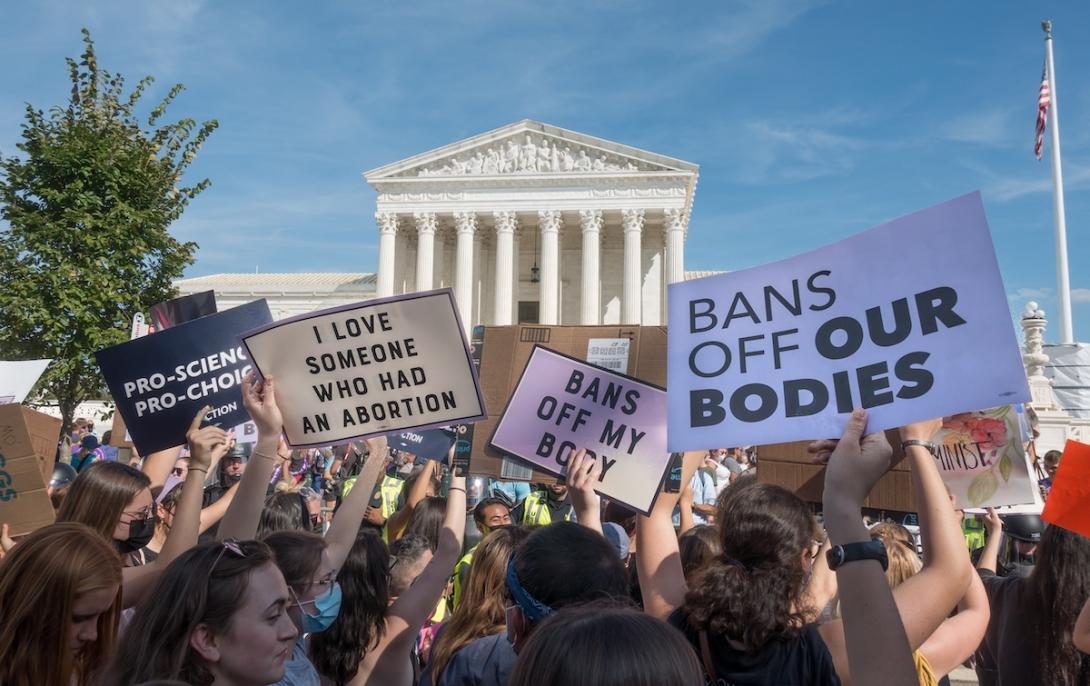
Oregon lawmakers are mapping out the state’s future reproductive rights in a landscape that no longer has the protections of Roe v. Wade.
That work started before the Supreme Court made its ruling overturning the nearly 50-year-old precedent, which now allows states to put their own abortion restrictions in place.
House Democratic leaders formed the Reproductive Health and Access to Care Work Group in mid-May — about two weeks after Politico reported on a leaked draft majority opinion from the U.S. Supreme Court.
The work group includes providers, clinics, community organizations and lawmakers. They’ll work on recommendations that will go to the House Speaker Dan Rayfield, D-Corvallis, for potential bills in the 2023 session.
The group has only met once so far and lawmakers say it’s too soon to know what ideas and recommendations it will produce. But they are expected to go beyond basic abortion services and include the following broad areas:
- Policy, administrative and budget proposals to strengthen and expand equitable access to all forms of reproductive care, gender-affirming care, and quality of care.
- Protections for marginalized populations, including LGBTQ+ children, families and adults; reproductive and gender-affirming care for patients.
- The work group may also evaluate any legal gaps if the Supreme Court overturns decisions that protect the right to use contraceptives.
“The goal is really to look at how we can make Oregon is a safe place for women and a state in which women, trans men, and non-binary folks can access reproductive health care that they need,” said Rep. Travis Nelson, D-N/NE Portland, in an interview.
Those discussions will include the impacts of actions in neighboring states, such as Idaho, where a so-called “trigger law” banning most abortions is in place. That law could go into effect as soon as July, though Planned Parenthood is challenging it in court.
The law would impact Oregon health care, as more Idahoans would cross the border for abortions. It also would impact Oregonians who live in eastern Oregon and cross the Idaho border for care.
The workgroup will also consider how the Supreme Court’s actions may affect LGBTQ+ people, including their access to fertility treatments and birth control, said Nelson, a nurse and the first openly LGBTQ+ and Black member of the Oregon House.
Nelson said: “For me to see a rollback of rights in this country. I never thought that we would be at a position in the United States of America where citizens were losing rights instead of gaining rights.”
An Do, executive director of Planned Parenthood Advocates of Oregon, said it will be important to think broadly about rights tied to privacy and how to protect them, as the court ruling means the world has “dramatically changed.”
“They have really overturned a fundamental core piece to what's protected,” Do said in an interview. “Our ability to have marriage equality, to have privacy and sexual intimacy, to abortion, obviously, and so I think as we're thinking about the health care implications, we also need to be thinking about what the potential civil liberties and freedom implications are too.”
Advocates have raised concerns that women’s data will be used against them in states where abortions are criminalized, and Oregon’s U.S. Sen. Ron Wyden has introduced federal legislation on the topic.
Legislative History
In 2017, Oregon lawmakers were concerned about abortion rights eroding. President Donald Trump had just taken office and the future control of the U.S. Supreme Court was an open question.
That year, the Legislature passed the Reproductive Health Equity Act. The law enshrined Oregonians’ right to have an abortion and also made family planning, contraceptives, health screenings, abortion and postpartum care more available. For example, commercial insurers cannot charge out-of-pocket costs to consumers for abortions and other reproductive health services.
The Oregon Health Plan covers abortions through state funding.
“I’ve had a chance to chat with folks in other states who are working on protecting and expanding access to abortion and Oregon is very well prepared,” said House Majority Leader Julie Fahey, D-West Eugene & Junction City, in an interview. “I'm happy with the work that we did in 2017 to lay the groundwork so that people in Oregon now know that they have that right to a safe legal abortion.”
Fahey said the next steps include hearing from providers and community groups about what “they are seeing on the ground and what is needed.”
Reproductive Health Equity Fund
In March, Oregon Democratic lawmakers put $15 million into a new Reproductive Health Equity Fund, spurred by the expected Supreme Court ruling.
The money is intended to bolster abortion access, particularly in rural and underserved regions with few if any providers. The money can also defray patient costs, such as for travel and lodging.
Seeding Justice, an Oregon non-profit, administers the fund and solicits donations.
On Thursday, the group announced a $25,000 gift from the Portland Trail Blazers, its first from a business and a professional sports team.
In a statement, the Portland Trail Blazers said: “The Trail Blazers are committed to fighting for equity. We recognize the importance of supporting the organizations that actively work to end healthcare disparities within our communities.”
Seeding Justice has announced its first grant of $1 million to the Northwest Abortion Access Fund. That funding is intended to help people most impacted, such as Oregonians in the state’s eastern region and people from Idaho and other states where abortion will be outlawed. The money will help cover the costs of abortions, travel costs and lodging expenses.
You can reach Ben Botkin at [email protected] or via Twitter @BenBotkin1.